| |
Morse Code Transmission
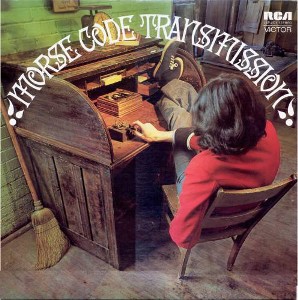
Morse Code Transmission
RCA - 1971
Michael Panontin
|
"Where have Christian, Jocelyn, Michel and Raymond been hiding?"
That was the reaction of CKOC (Hamilton) music director Nevin Grant upon hearing the debut album by four francophones who called themselves Morse Code Transmission. It was a group that few outside Quebec had even heard of. Or even inside Quebec for that matter. And they could hardly speak English. But that didn't stop RCA from flying the four down to their Toronto studio to make a record with the aim of cracking the lucrative anglo market.
Morse Code Transmission had played together since 1968 in a group called Les Maitres. That Quebec City quartet of singer/keyboardist Christian Simard, guitarist Jocelyn Julien, bassist Michel Vallee and drummer Raymond Roy issued a trio of singles in 1970 on RCA. The best of those, the guitar-heavy b-side to their second called 'Tu le sauras demain', seemed to hint at what was to come.
The guys changed their name the following year to Morse Code Transmission and augmented their pop-oriented sound with more au courant blues-rock, psychedelia and prog elements. After inking a new deal with RCA, they were hooked up with producer Bill Misener, who "lived in" with the boys and co-wrote eight of the twelve tracks with Simard. Simard, for his part, delivers a strong vocal performance, all the more amazing since, as RPM reminds us, he sang it for the most part phonetically.
Morse Code Transmission issued their debut album in the summer of '71 and RCA gave it considerable push. By early September, they had taken out a full-page ad in RPM in which CKOC's Grant further praised the record's "superb production" and its "excellent selection of material from talented writers". By 13 November, the magazine featured the group on its cover and by the following week another piece reported that the single, 'Oh Lord', was charting across Quebec.
The twelve tracks on Morse Code Transmission are all over the place musically, flitting from softer AM-friendly fare ('Time', 'Story-Book Life') to organ-powered late psychedelia ('Fire Sign', 'Freedom Train'} to twangy fiddlefests ('Hunting & Laughing'). At RCA's request, Grant suggested five tracks as potential singles, so enamoured was he of the entire LP. Curiously, none of those was 'Freedom Train', a hefty amalgam of Deep Purple and Sugarloaf that is clearly the strongest track. In hindsight, RCA made the right choice. Though it only reached #69 nationally, 'Oh Lord', with its gospel harmonies and spiritual themes, got solid airplay on the home front, from Montreal to Chicoutimi and from Quebec City to Sherbrooke and all points in between.
The group followed up the next year with Morse Code Transmission II, a sprawling 2-LP set that is today considered their high-water mark. Things changed in 1975 when, with their name shortened to Morse Code and with Simard now singing in French, the band signed on with Capitol and recorded a trio of LPs that firmly cemented their name into the prog-rock canon.
|
|
Suggestions
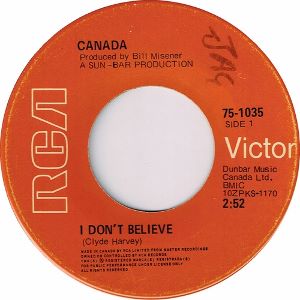
Canada
I Don't Believe / Coochy Coo - 7"
RCA
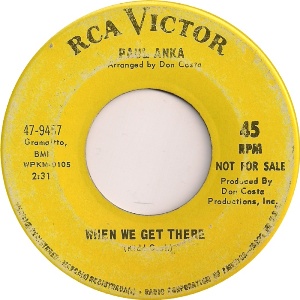
Paul Anka
Can't Get You Out of My Mind / When We Get There - 7"
RCA
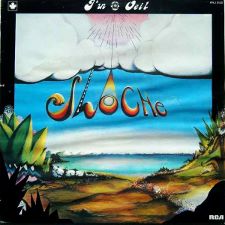
Sloche
J'un Oeil
RCA
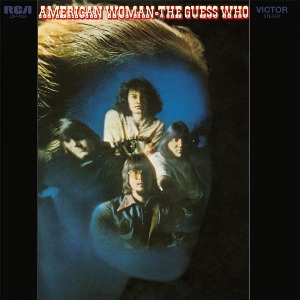
The Guess Who
American Woman
RCA
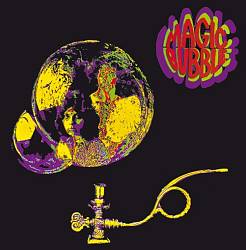
The Magic Bubble
The Magic Bubble
Columbia
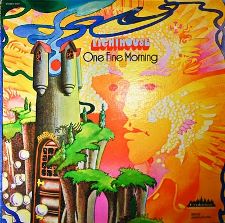
Lighthouse
One Fine Morning
GRT
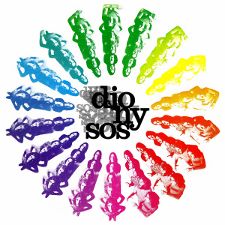
Dionysos
Le Grand Jeu
Jupiter
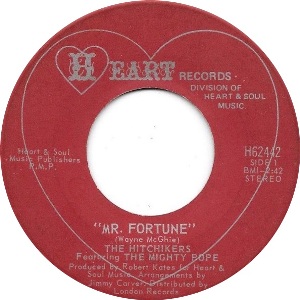
The Hitchikers Featuring the Mighty Pope
Mr. Fortune / I May Have Been a Fool - 7"
Heart
|








